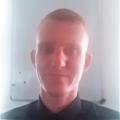
A graduate is heading to the finals of a national competition after impressing a panel of judges with his solutions for attracting talent to the nuclear industry.
Tom Calverley, a graduate radiometric physicist working at Sellafield’s Engineering Centre of Excellence, has won the Cumbria stage of the competition to reach the UK finals.
Tom, a physics graduate from the University of Liverpool, is seconded to the Unmanned Aerial Vehicle (UAV) team at the Engineering Centre of Excellence at Cleator Moor as part of Sellafield’s Graduate Development Programme.
Pete Allport, Sellafield’s Remote Handling Lead, alerted Tom to the Young Generation Network of the Nuclear Institute’s competition in Cumbria as part of his personal development.
Tom, from North Wales, said: “The competition involved giving a presentation on the topic of the nuclear industry.
“I wanted to look at some of the things we can do to attract and retain talent in the industry.
“Nuclear gets some bad press. If you are fresh out of university or looking for an apprenticeship you often see negative headlines.
“There’s also an ageing workforce which brings a knowledge loss problem. And if you look across the entire world of the nuclear industry there’s an attrition rate of approximately eight per cent.
“It’s our job as professionals to turn that around and to tackle that culture and those perceptions and ensure that we have a pipeline of young talent coming through.”
Tom’s talk was titled: ‘Attract, Innovate, Retain, Repeat - the Exciting World of Legacy Facilities’ recommending that technology and innovation are put at the forefront of attracting graduates and apprentices.
Tom said: “There’s lots of exciting developments in robotics, AI, UAVs, ROVs, submersibles in the nuclear industry but you don’t necessarily see that because a lot of it happens behind closed doors. This technology gives us an opportunity to attract young talent.”
During his secondment at the Engineering Centre of Excellence, Tom is providing a technical link between a radiometric group and the UAV team at Sellafield, working on a pioneering initiative so that dose surveys will be able to be carried out remotely in hard-to-reach, hazardous areas.



Comments: Our rules
We want our comments to be a lively and valuable part of our community - a place where readers can debate and engage with the most important local issues. The ability to comment on our stories is a privilege, not a right, however, and that privilege may be withdrawn if it is abused or misused.
Please report any comments that break our rules.
Read the rules here